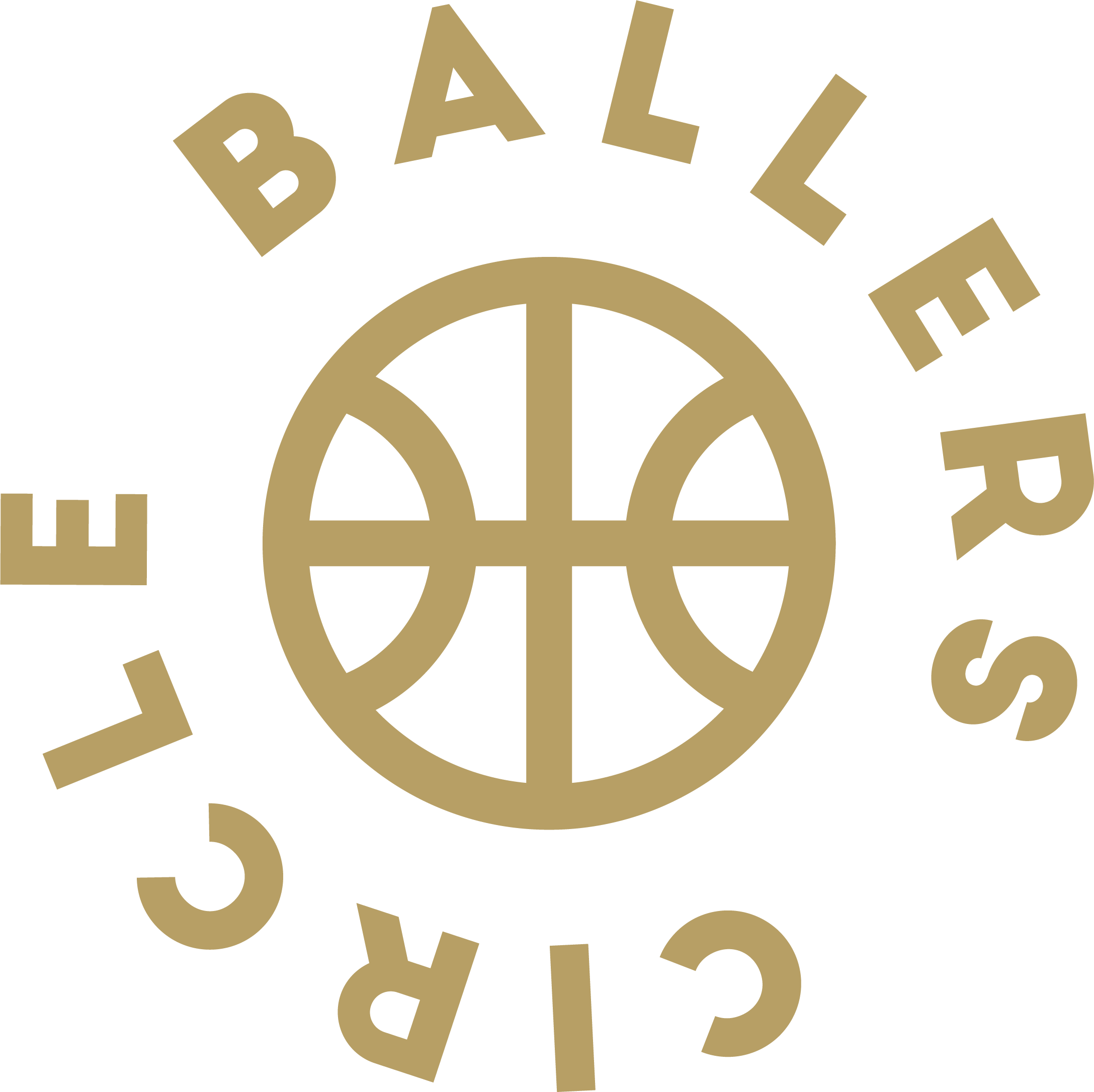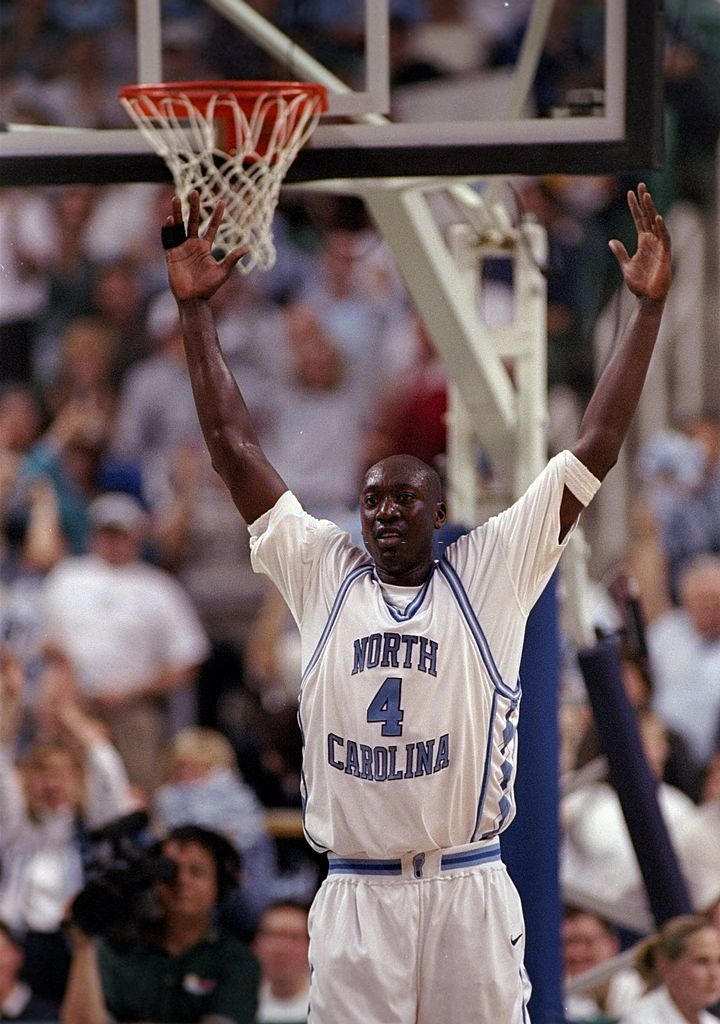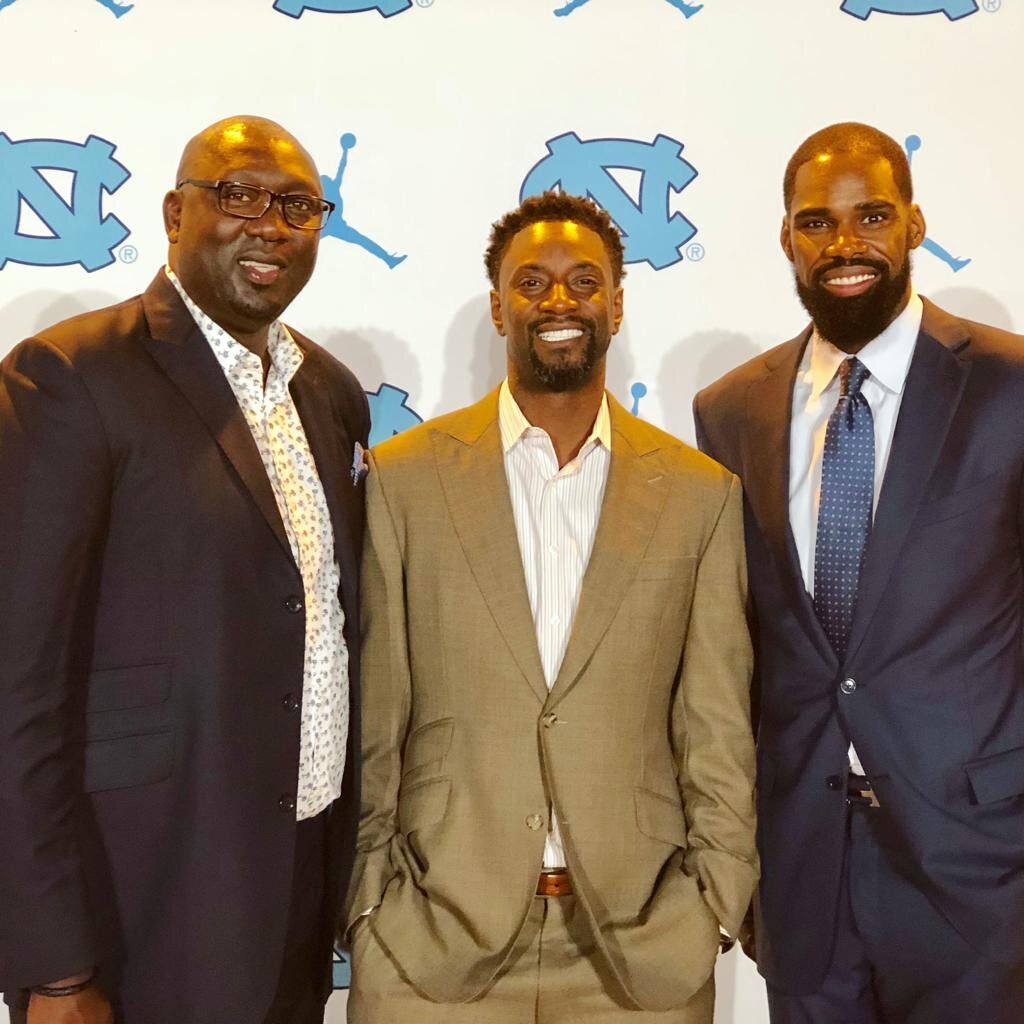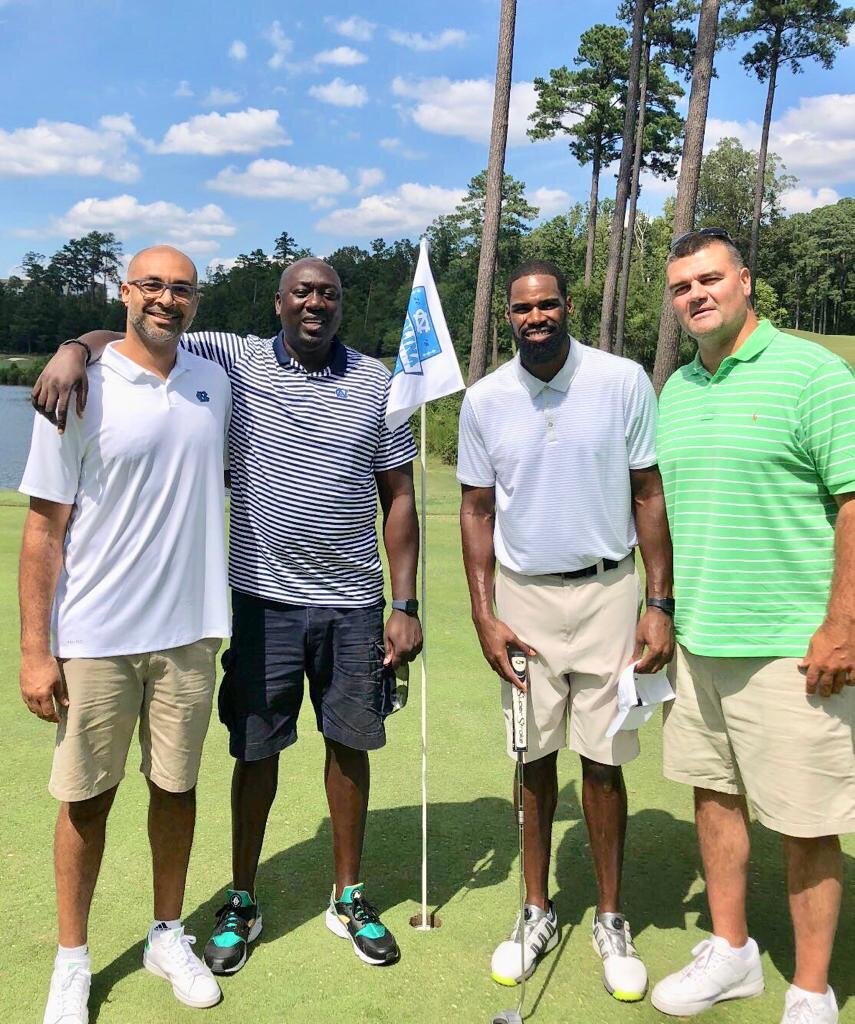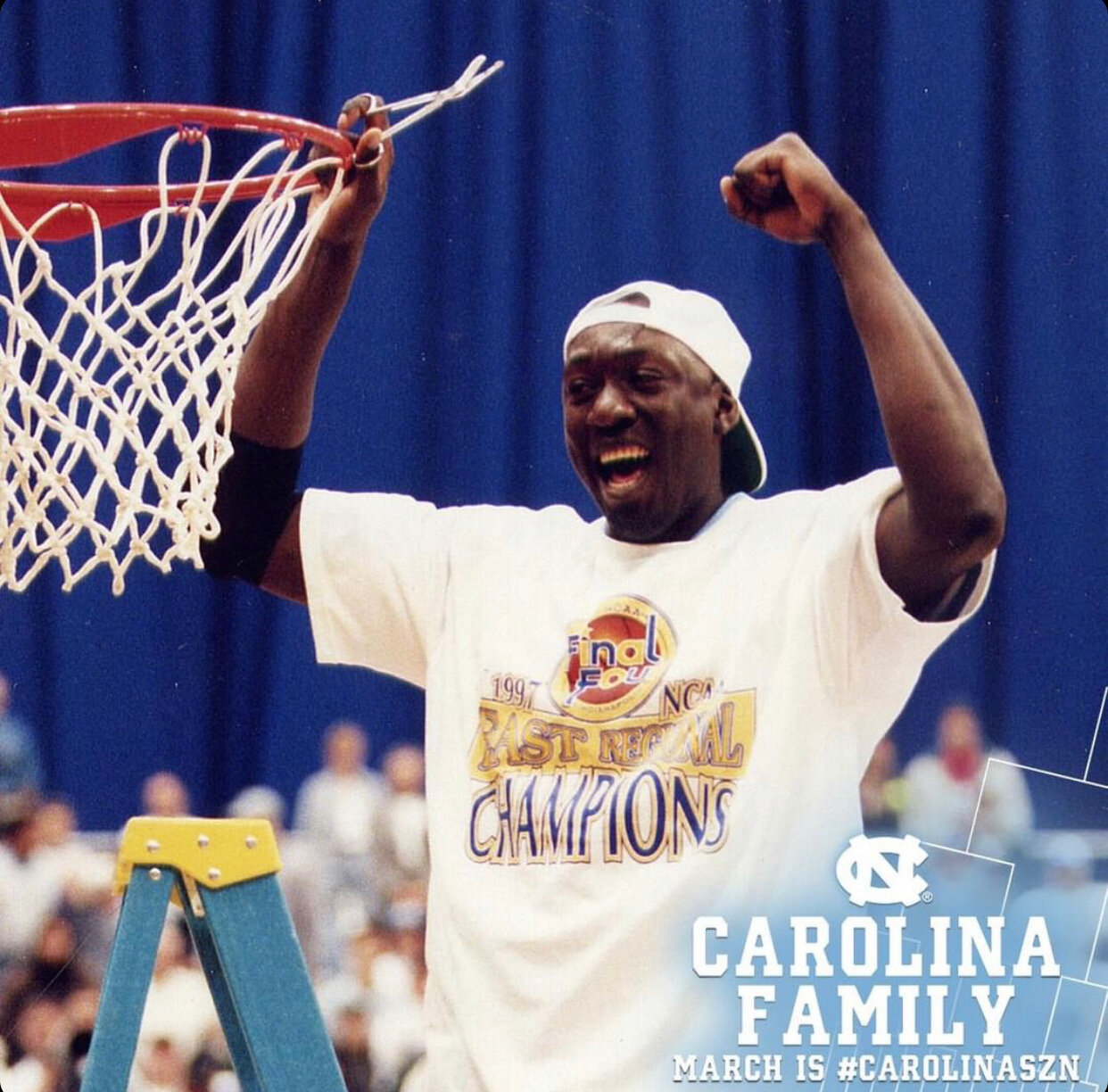Part II
Michigan | UNC | FIBA
“Seeing people I helped out make it, for me, that is getting my jersey retired”
En Français
Brothers for Life
Experiences that built a lifetime
March 2021
Written by Amir Ali
Contributors
Thank you to Antawn Jamison, Amadou Gallo Fall, Juwan Howard, Sonny Vaccaro, Pam Vaccaro, Jimmy King, BJ Johnson, Jerry Stackhouse, Jeff McInnis, Marc Spears, Ademola Okulaja, Bouna N’Diaye, Boniface N’Dong, Georges Niang, Desagana Diop, Thomas Kelly, Boubacarr Richard Aw and Rob McClanaghan for their generous insight into Makhtar’s incredible journey.
The Michigan Fab 5. Everybody in the country knew them for how unapologetically they carried themselves. Their swagger was a planned envisioning. This group of five young African American hoopers wanted to change the culture of the game. The only part of it unplanned was the mere chance that all five of them — Jalen Rose, Chris Webber, Juwan Howard, Ray Jackson and Jimmy King — all joined forces at Michigan. The rest of it — the history — was a calculated effort. Makhtar was a perfect fit to join the movement.
As a hard-nosed group that dripped of the “love us, or hate us” attitude, Makhtar joined the team in the winter of 1993, as one of only three commits who dared to join the team during the pressure of the entire Fab 5 era. It was a hot team, a hot program and everybody knew who was going to start the game. It is at this juncture that Makhtar began to see the game in a uniquely mature light and embraced being a role player, while being one of the more skilled big men around.
When you’re not the star, you kind of get a different view of everything. As a role player, you’re seeing things through everyone’s eyes, not just yours.
To Jimmy King, Michigan’s starting shooting guard, joining the Fab 5 team spoke to Makhtar’s ability and confidence as a player, as well as developed his unyielding team-centric philosophy to winning basketball games. This would become critical as his career progressed. “Someone who takes initiative to accept being a role player understands how a team works. He was that guy you want to set a screen for you because you knew you would get open. He puts his thigh into you, uses his body. You could also count on him on the weak side to grab the rebound. He wasn’t going to get pushed in or get boxed out. He could command a whole half of the glass, which you need to rely on as a shooter. He could erase those mistakes 60% of the time. That’s huge. Guys like him can put a team together.”
Senior NBA Writer for The Undefeated, Marc Spears, echoes this same point. “When you’re not the star, you kind of get a different view of everything. As a role player, you’re seeing things through everyone’s eyes, not just yours. Watching a lot, hearing a lot, trying to fit in, figuring out what works. Makhtar now has a really, really good eye for talent, both American and International.” Although highly-touted for his talent coming into college, Makhtar gracefully accepted being this role player at Michigan and thrived in doing the little things for the Fab 5.
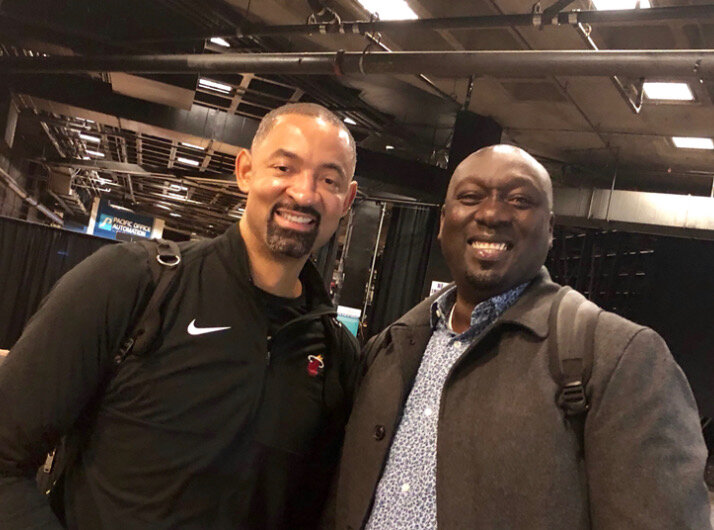
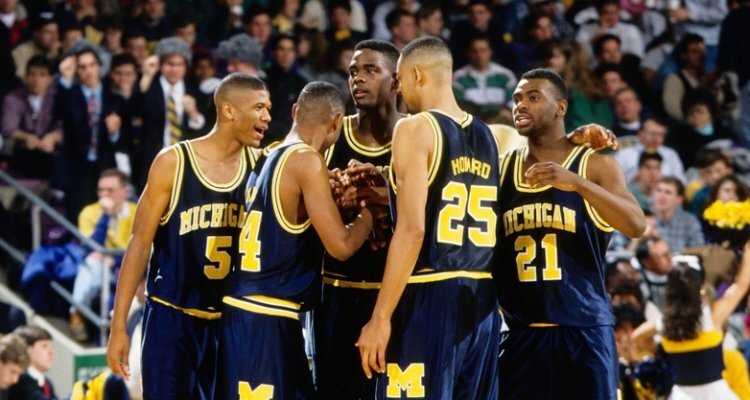
Whether on or off the court, Makhtar enjoyed being the protector of the team. The national media took interest in spotlighting the Fab 5. Their edge, rooted in the fact that they were an all-black starting five that did not conform to the traditional collegiate athlete image, challenged society’s comfort-level in accepting different sub-cultures. Anything done surrounding any member of this revolutionary team could have been twisted to paint a broader image consistent with presuppositions.
This was on full exhibit one day when Jimmy King and Makhtar were driving at prime time through central campus in Ann Arbor. Jimmy was behind the wheel and pulling towards a stop sign when suddenly a biker darted out on the road right in front of the car, causing Jimmy to slam on the brakes, avoiding a nasty collision. Understanding his mistake in a potentially serious situation, the biker kept pedaling and picked up speed as if nothing had happened. Had the car actually hit the biker, with the notoriety of this team, Jimmy would have been under an enormous national microscope. “Before I knew it, as I am stopping,” Jimmy laughs, “Makhtar had already opened up the passenger door, jumped out the car and chased him down on foot. He picked him up off of the bicycle and confronted him for jumping in front of the car. He told him to respect everybody’s law, not just his. Makhtar doesn’t tolerate any bull.” Almost everyone loves that quality about Mak. He is straight up, man-to-man, eye-to-eye.
Current Michigan head coach and former Fab 5 center, Juwan Howard, talks about the spirit that Makhtar brought to that team, as he played a major role in recruiting Makhtar to Michigan. “He has that infectious way of you growing your relationship with him because you trust him. You know that he will do whatever he can to be there for you – whether that is a phone call, giving you the clothes off his back, or giving you his last meal. That’s the type of person Mak really is.” Far away from Senegal, Makhtar’s teammates became his family. He was enjoying being in this hotbed, competing alongside the most popular team in the nation. “Mak has always been the protector, protecting his family at all costs.”
In the summer of 1995 — after two successful seasons at Michigan with a group that had several players transitioning onto the NBA — Makhtar transferred to the University of North Carolina at Chapel Hill. This time around, he had to sit out.
chapel hill
In the summer of 1995, Makhtar became the first transfer Dean Smith ever accepted in his thirty-four years of coaching at North Carolina. The Tar Heels were loaded. College standouts and future NBA all-stars, Jerry Stackhouse and Rasheed Wallace, had just left campus for the NBA, but the team still had future NBA veterans Jeff McInnis and Shammond Williams returning with an incoming class headlined by Vince Carter, Antawn Jamison, Ademola Okulaja and Ed Cota. In being Dean Smith's first transfer ever, the entire team was curious to see what was so special about Mak’s game. Like Oak Hill, Wake Forest and Michigan, all eyes were on Makhtar once again.
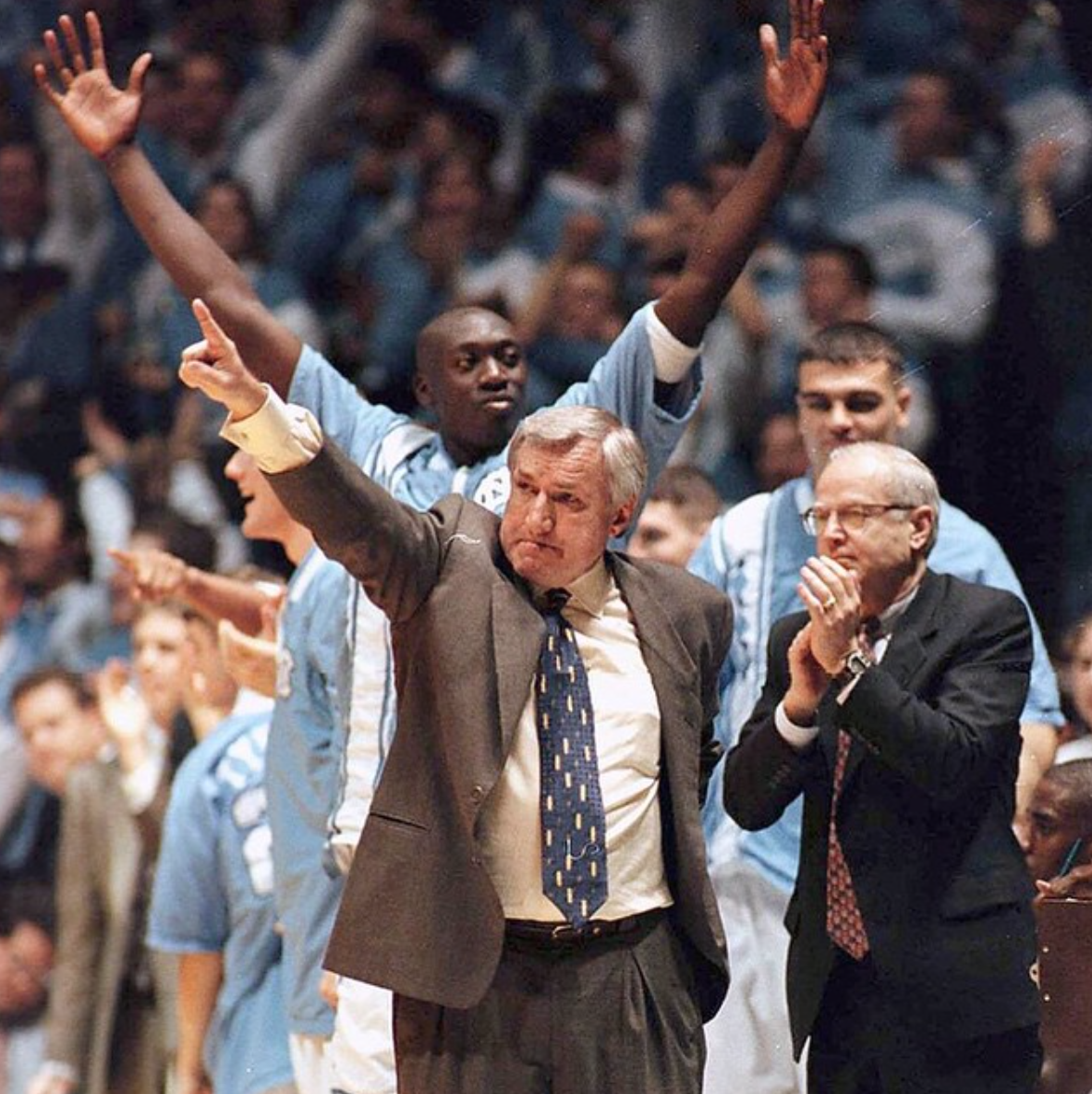
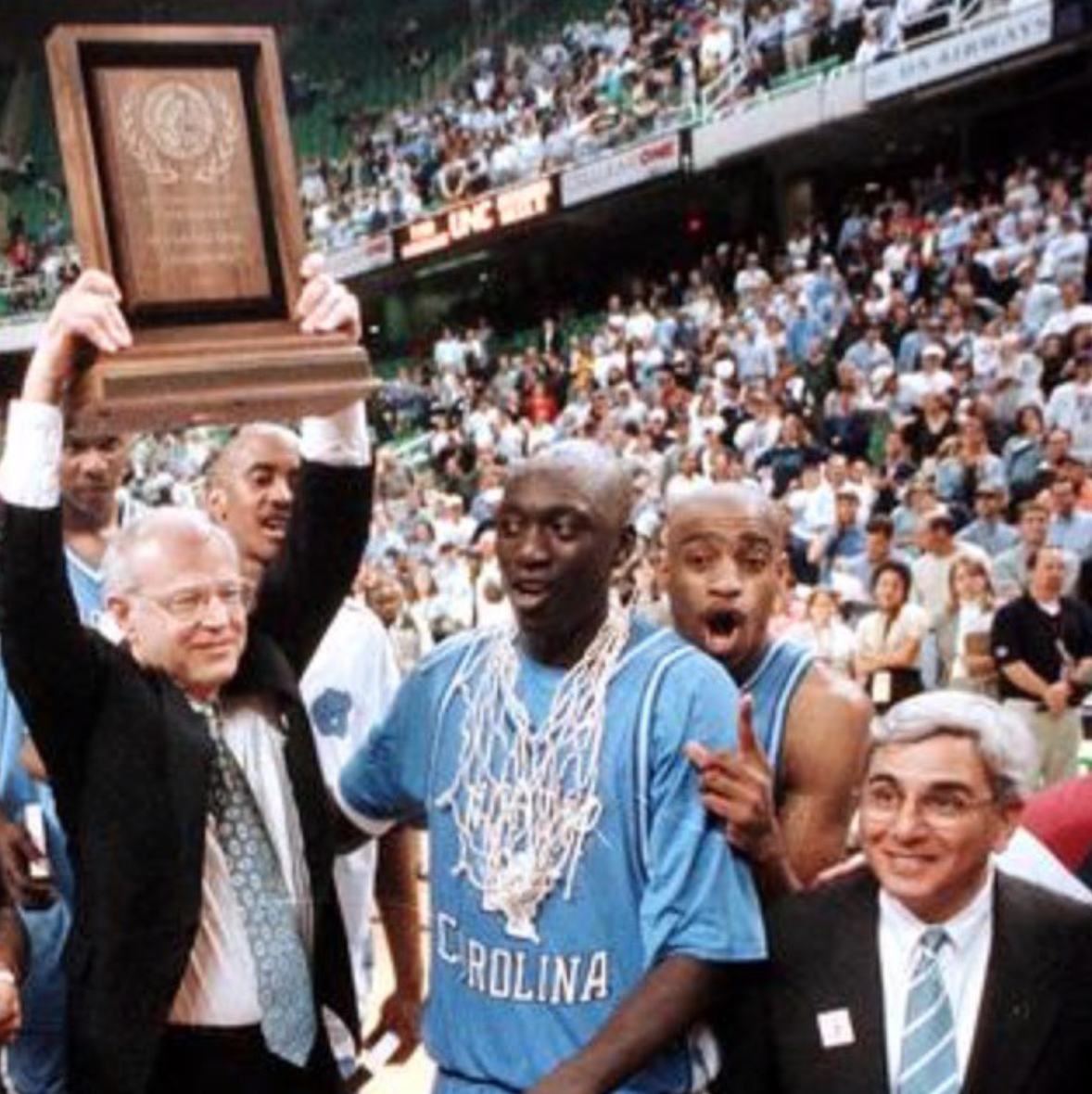
“From the start, Mak was outspoken and very hard working. He was an undersized big man, but had super long arms, was a great defender and had a very high basketball IQ,” says North Carolina teammate Ademola Okulaja. Born in Nigeria and raised in Germany, Ademola connected immediately with Makhtar as they shared roots in both African and European cultures and hence, shared a sense of humor. Between the two, to this day, they have fun with it.
One thing you could never ever do around Dean Smith was swear. He would not have it. Ademola used to curse in German, but from the tone of the language, Coach Smith could tell exactly what he was saying. So Ademola switched to Turkish, words he learned from his best friend growing up. Of course, the one person on the team who knew what they meant was Makhtar. Makhtar would always tease Ademola about telling Coach Smith what he was actually saying. Then, one practice, the ball went out of bounds and Ademola spouted one of his go-to Turkish phrases. In front of the team, Coach Smith immediately put Makhtar on the spot asking him what was said. It was one of those moments in which Ademola knew he was done for. “Ohhh you know, Coach, it just means, uhhh…focus, concentrate, something like that.” Makhtar saved him. You can hear Ademola’s relief to this very day. This transfer kid brought a little different flavor to the team.
Creating the room for Dean Smith to just be himself, while he was balancing this legendary public aura, evolved into an unbreakable bond of trust and comfort. Going to war for Coach, after all he had been through…is something that Makhtar took immense pride in.
Between Dean Smith and Makhtar, there was a special connection that prevailed all the way to Coach’s passing in 2015. It is rooted in that very fact that Dean Smith had never taken a transfer ever before. For Coach Smith, he cared for Makhtar and saw an innate tough skin that could have only been developed through life’s rough winds. For Makhtar, amidst all the moving around and tumult since arriving to the United States at 17 years old, he found comfort in a father-like figure who went out of his way to accept him. That bond always lived between the two.
Makhtar with Tar Heel spirit (via Craig Jones /Allsport)
Antawn Jamison describes Dean Smith like the character in the old movie, The Don. You show respect, you look one another in the eyes and you speak a certain tone. Very old school. However, Makhtar, “as long as I’ve known anybody to be around Coach Smith, whether it was Coach Smith’s buddies, or whoever, in front of us, Makhtar was the only person that could allow Coach Smith to let his guard down.” Makhtar would always crack jokes with Coach, “and I’m sitting here like ‘you can’t do that, Makhtar!’ And he is like, ‘Whatcha mean? Coach, let me see you get jiggy with it!’ He even had Coach raise the roof. Whether it was MJ or James Worthy, I’ve never known anyone to do that. It’s crazy.”
Creating the room for Dean Smith to just be himself, while he was balancing this legendary public aura, evolved into an unbreakable bond of trust and comfort. Going to war for Coach, after all he had been through, with The University of North Carolina, across his chest is something that Makhtar took immense pride in.
So, in the start of Makhtar’s second season at UNC and Dean Smith’s final season, when the men’s basketball team started off 0-3 in ACC play, Makhtar was not letting anything affect the team’s confidence. Writers were creating a ruckus that the basketball team had fallen off. The team itself was down and confused. And, at the same time, the football team was ranked #3 nationally and had a lot of buzz.
“I hated you sometimes in college bro,” Vince laughed. “You were so hard on me man, but you got me to where I am today.”
In that very week, Antawn Jamison and Makhtar were walking around campus, when a group of ten or fifteen football players sneered, “Yeah, this the football school now! Y’all time is over with!”. The football players arranged themselves into a half circle and stared Antawn and Makhtar down. Makhtar, at 6’8, walked right up to them with no hesitation. “I’m like come onnnn, Mak, it’s just me and you dawg, ain’t no way this is going to turn out good. He stood there and told them guys, these are BIG guys, ‘this is the University of North Carolina. If we don’t pull for each other, then y’all shouldn’t be here. I chip y’all just like y’all should chip us. You got a problem with that, say something to my face right now so we can go ahead and get this off our chest. This ain’t no football or basketball school, this is the University of North Carolina.’ It’s crazy the amount of respect he got from them guys.” The big man on campus was established. You were a Tar Heel before you were anything else. Makhtar was already good friends with all the athletes. Now, the respect was taken to another level.
Makhtar with some fellow Tar Heels.
His protective aura carried onto the court. Within the team, Makhtar was the older brother - an extension of the coach who made everyone be honest with themselves and was always willing to step up to have his guys’ backs. Makhtar has a talent to see the potential of what someone can accomplish and apply tough love to make sure it happened. No excuses. Stop complaining. Figure it out. We’ll talk it out. Future NBA Hall of Famer Vince Carter pulled Makhtar aside a few years back to tell him words that touched his heart. “I hated you sometimes in college, bro,” Vince laughed. “You were so hard on me man, but you got me to where I am today.” Antawn echoes the same sentiments today.
For Makhtar, “Seeing people I helped out make it, for me, that is getting my jersey retired. I never realized what I was doing was impacting them. They’re just my guys man, those are my guys.”
Cradling a sense of togetherness is very important to Makhtar. It stems from his Senegalese culture. To this day, Makhtar keeps the Tar Heel group tight by creating a group chat of 80 Tar Heel’s players from the 90’s and 00’s. Back in college, he hosted dinner every Sunday at his place. Even more than competing as teammates, it was these gatherings away from the game that nurtured this family bond they carry today.
Ademola Okulaja reflects on this endearing trait of Makhtar’s. “Makhtar was often the initiator, or the person who kept everybody together, or if he wasn’t the person who did it, at least he was the voice. People were looking for his reaction, his advice, or ‘what would you do, Mak?’ That is very special in guys right there, in helping other guys turn from boys into men, that is why he has the father/big brother feeling to him. He knew people everywhere. Everybody knew him and we would ask him, ‘How do you know him?’ He always had a story about it.”
To longtime friend and former Tar Heels, Jerry Stackhouse, Mak was able to bridge the guys from the Dean Smith and Roy Williams eras. They had the same principles instilled in them, just from two different people.
After their rough start, this Tar Heels team made it to the Final Four in what would be Dean Smith’s last season coaching.
1997 FIBA africa
In the summer of 1997, Senegal was hosting the FIBA Africa Championship. This was their time to win. Senegal had not won since 1980 and as a basketball country, the people were restless for a championship. Senegal always had a wealth of basketball talent, but from playing professionally in Europe, the Middle East and Asia, it was tough to get everyone together. In preparation for the league, Makhtar himself had an important summer going into his last season at North Carolina. NBA scouts and general managers frequented Chapel Hill throughout the summer to see the guys play against each other and against the pros who would drop by. Against the advice of many, Makhtar went home to compete and convinced Georgetown forward, Boubacarr Richard Aw, to join, despite being in a similar predicament. Makhtar believed that if everyone came together, they could finally win it all.
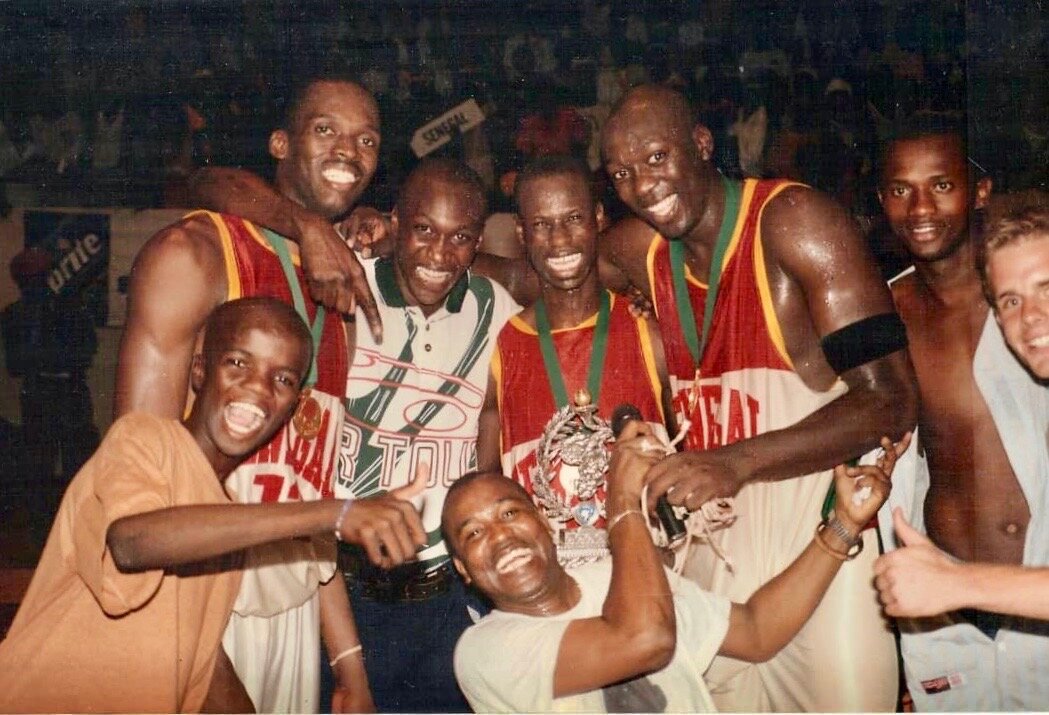
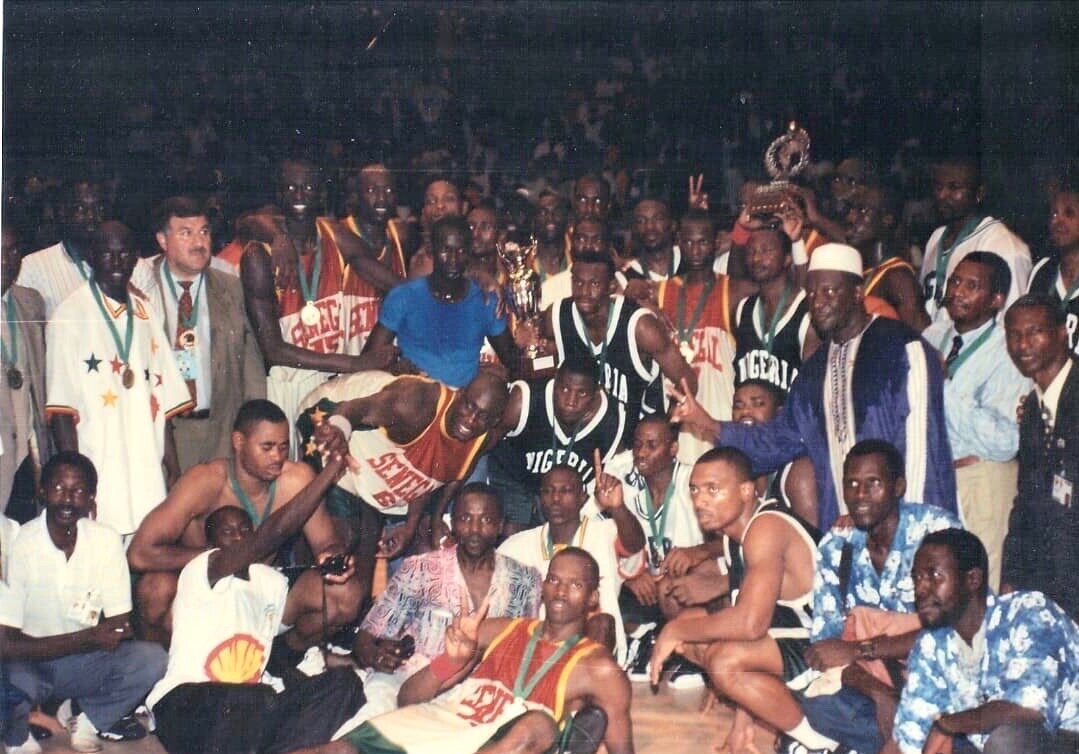
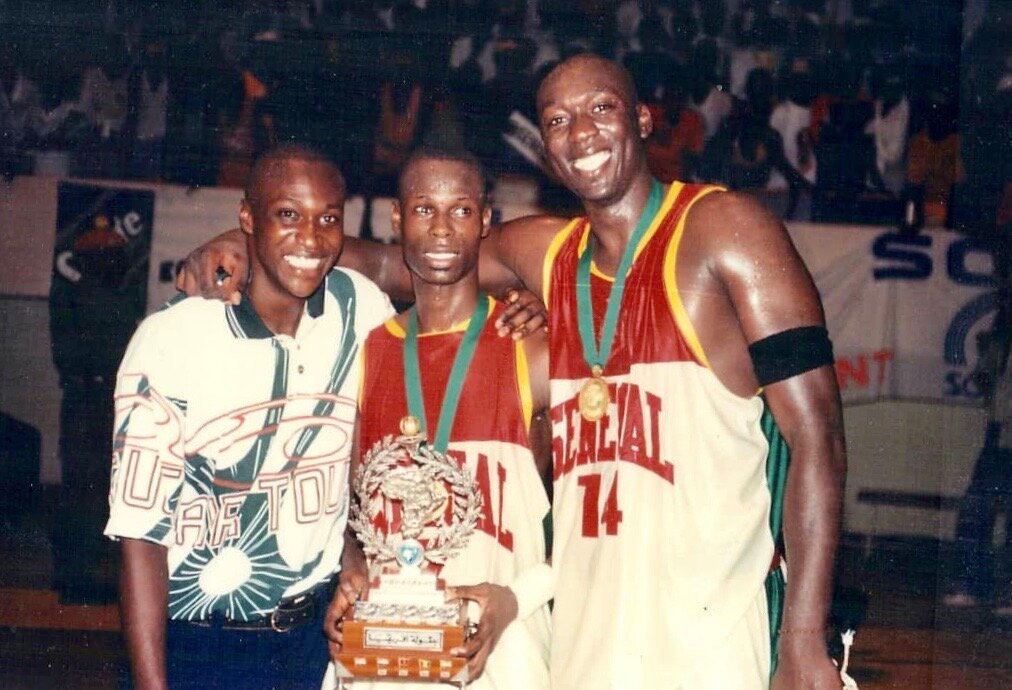
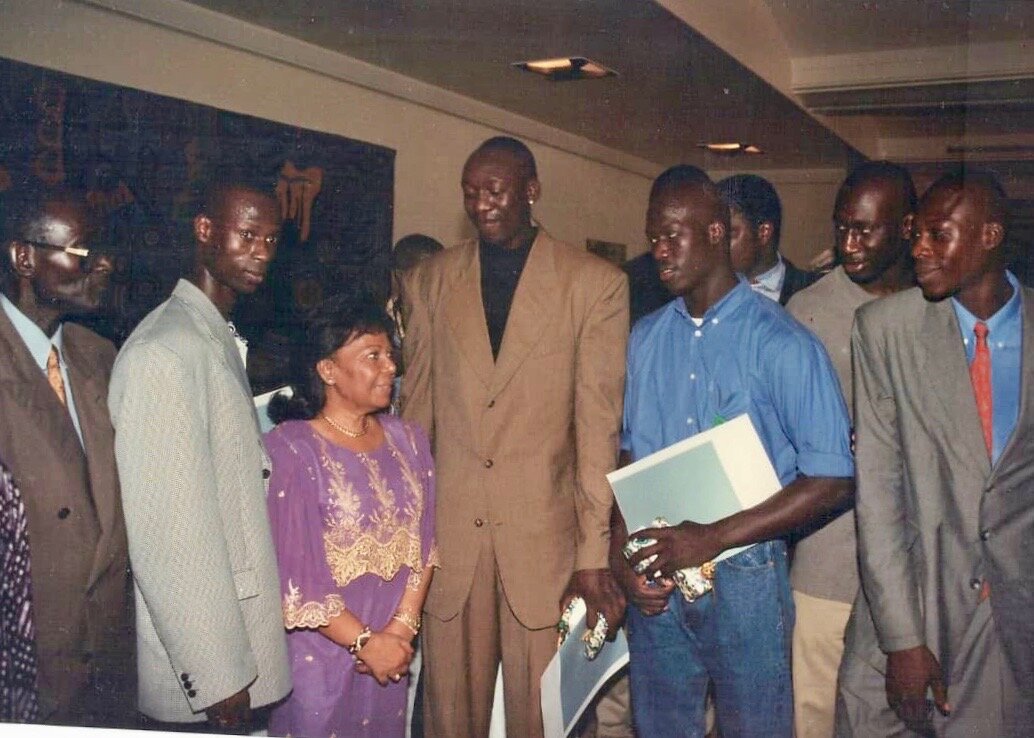
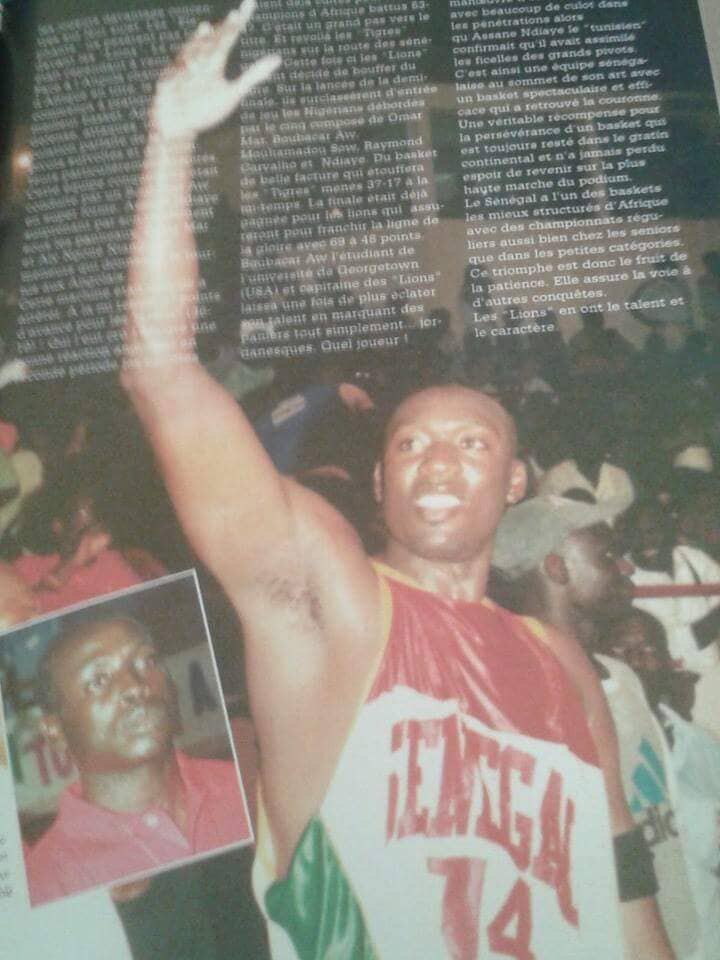
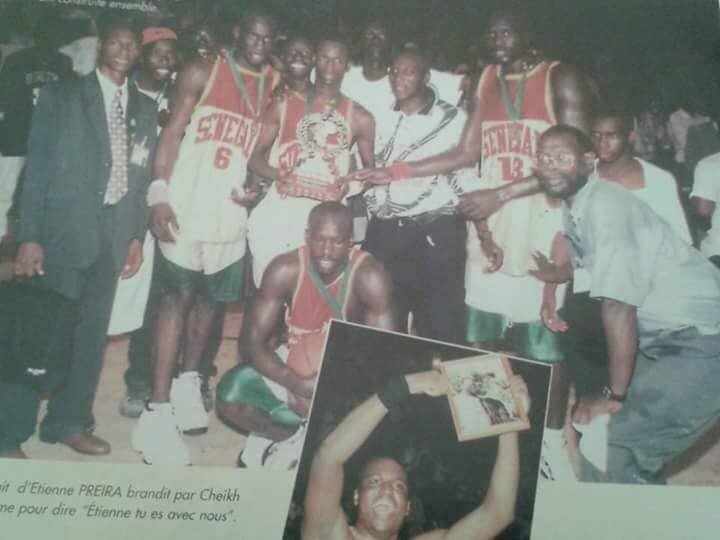
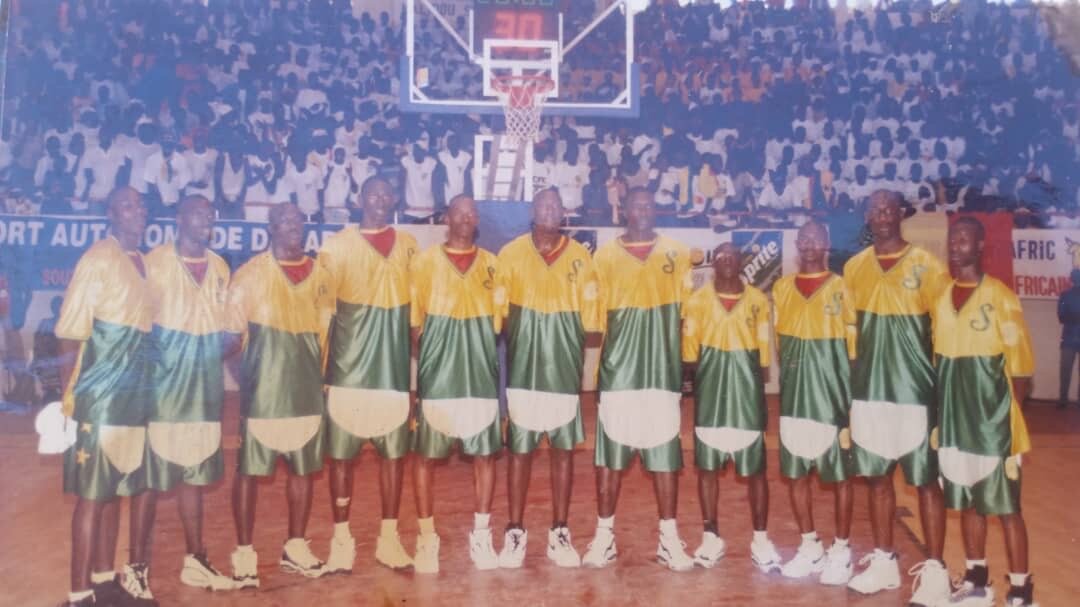
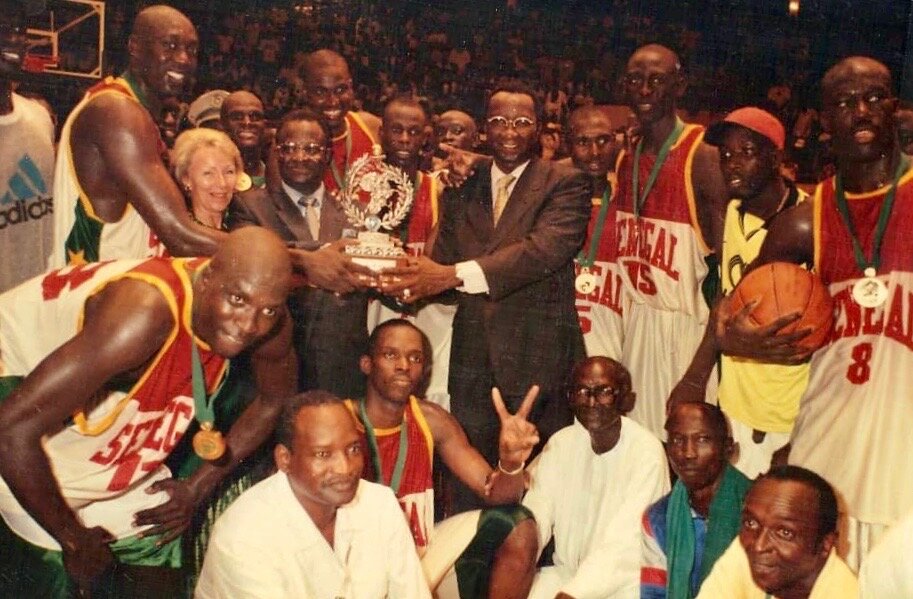
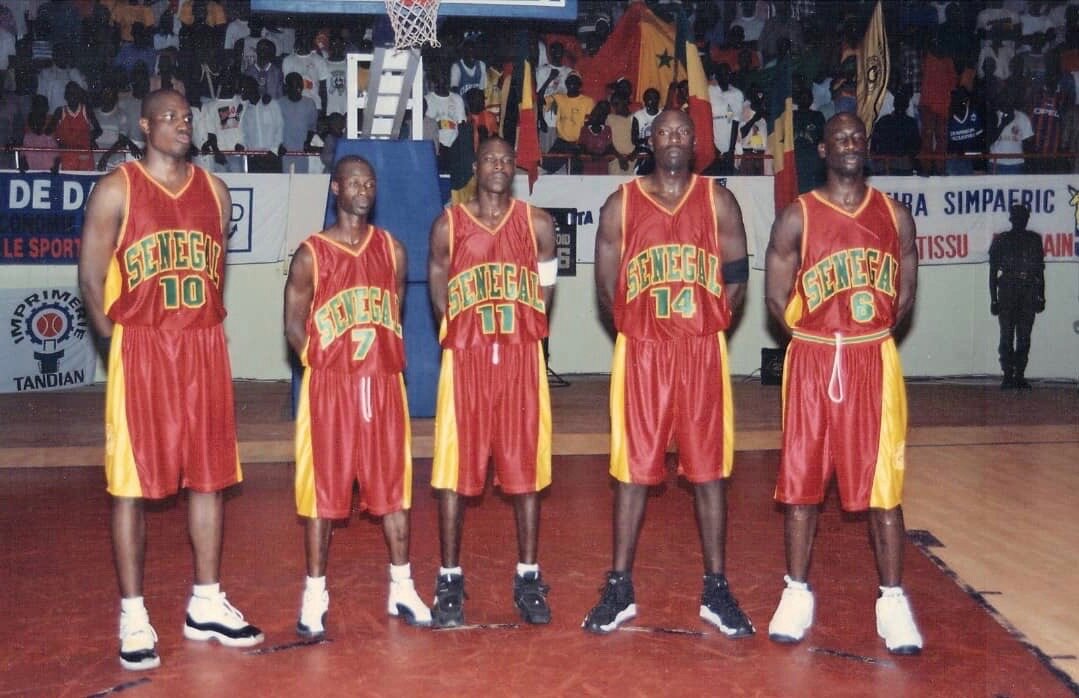
Early on in the tournament, Senegal lost to Nigeria in a truly physical clash, 50-38, the lowest scoring game of the entire tournament. Both teams were undefeated and the loss deflated the teams’ spirit immensely. Fans were livid; cursing out the players and creating such an uproar over the disappointment that police had to protect the team.
Boubacarr shares that after the loss, Makhtar called a team meeting in the hotel, as its de-facto captain and instilled a sense of unity and belief in the team that they can win the championship. You have to have that sense of belief and togetherness to win the war. “We were young. He grew everybody together. He was friends with everybody. Everybody respected him and he could relate to everybody. That’s who he is, man,” says Boubacarr.
That was Senegal’s last loss that summer. After beating Angola by 6 in the semifinal, the Senegalese team went on to beat Nigeria handedly 69-48 in the championship game, taking the crown on home soil and qualifying for the 1998 FIBA World Championship.
Amidst the roaring hometown fans of Dakar, Makhtar embraced close friend Amadou Gallo Fall, now the Vice President and Managing Director of NBA Africa. They had become as close as brothers, as Amadou spent a lot of time visiting Makhtar at Chapel Hill once he finished his own collegiate days at the University of the District of Columbia. Both had big dreams for their country. Amadou essentially played the role of GM for this team. Now, they were all champions.
Former 13-year NBA forward DeSagana Diop reflects on how much this meant to the youth of Senegal. “Him being at North Carolina and coming back to play for the national team - then winning the African championship in 1997 - I had just started playing basketball, and I remember thinking, I just want to be just like Mak.” There was real hope brewing within the country that it’s players, too, were talented enough to reach the highest levels in the world. This group of mavericks had paved the way for a generation of seeds to sprout.
